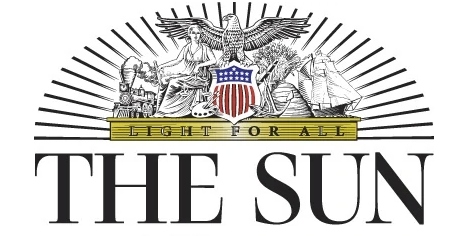
Published in the Nov. 4, 2021 edition of The Baltimore Sun
The images of insurrection in the U.S. Capitol have run on a near constant media loop since Jan. 6: Donald Trump refused to concede the election; his supporters assembled on the National Mall, where he riled them up even further; and rioting broke out at the Capitol.
Less portrayed in mainstream media, however, is the Christian hue of it all: the Capitol-focused Christian prayer rallies in December that propagated post-election lies; the Christian flags unfurled as rioters mounted the Capitol steps; the pastors and self-proclaimed apostles who exhorted the D.C. crowds of Trump supporters; the rioters speaking in tongues; the Proud Boys kneeling to pray before they went off to stomp some heads.
There was an undeniable religious aspect to the riot. While many at the Capitol were fighting against the political opposition and institutions of government, a significant number believed they were also engaging in spiritual warfare against demonic forces of evil that they believed had hijacked the election from Mr. Trump. And by no means have they given up the fight.
The religious dimensions of Jan. 6 did not emerge from nowhere. Numerous high-profile Christian pastors egged on their followers to defend Mr. Trump at all costs in the season between the election and the inauguration. A rhetoric of biblical violence and spiritual warfare suffused those months in conservative Christian circles, as Christian conspiracy theorists bought into Mr. Trump’s big lie and Christian media empires and ecosystems amplified his falsehoods. Dozens of “charismatic movement” and Pentecostal prophets claimed God had revealed Mr. Trump’s 2020 victory to them in advance.
What we saw on display on Jan. 6 was a violent crystallization of “Christian nationalism,” which is less a coherent movement than a tendency, a habit of religious mind, of conflating one’s national identity, political clan and sense of patriotism with one’s religion. Globally, religious nationalism is on the rise, fueled by plague and local politics, charismatic political leaders and power-hungry religious leaders, all battling against the religious pluralization and intermingling that accompanies globalization and migration. America is no exception.
The Christian symbols, slogans, songs and identities flaunted by the rioters were not accidental, but rather they declaratively manifested the fusion of their religion, their Trump support and their vision of a Christian America. A 2017 study found that 29% of Americans agreed with the statement that “the federal government should declare the United States a Christian nation” and 26% believe that the United States has always been and currently is a Christian nation.
Christian nationalism is not a marginal perspective, nor as we learned on Jan 6, is it benign. It has, however, dropped out of our public reckoning with the insurrection. Despite some sharp media coverage of Christian leaders’ involvement in the immediate aftermath of the riot, the media narrative has since turned to following the detailed legal proceedings against the rioters and the inevitable back-and-forth in Congress. Nor is religion an evident focus of the U.S. House select committee investigating the insurrection.
It is tempting in the face of such overt religious and political violence, to say that it was a one-off event. Put that episode on the historical shelf as an idiosyncratic happening brought on by the unique circumstances of a hotly contested election, a pandemic and an unprecedented president refusing to accept reality. Couldn’t happen again, right?
In fact, it already is. The rhetoric of Christian violence, narratives of spiritual warfare in American politics and religiously inflected support for Donald Trump that surged into view in January are all still present and have been, if anything, galvanized by the riot. The same groups and leaders have turned their attention and considerable networks to the presidential election of 2024. Whether Donald Trump is the Republican nominee or not, we could well see further outbreaks of violence fueled by the worldview of Christian nationalism.
Religious freedom is paramount to life in America, and I am not suggesting any abridgment of anyone’s religious freedom. But the rest of us who do not buy into the Christian nationalist narrative need to be informed about it. We desperately need to learn about the religious communities and social media networks that fostered the conflagration. We need to pay attention to those religious leaders who collaborated with Mr. Trump to instigate and engineer our present state of national political discombobulation.
The religious forces that impelled some Christians to storm the Capitol haven’t gone away, and we ignore the gathering clouds of Christian nationalism at the peril of liberal democracy.
Matthew D. Taylor (mtaylor@icjs.org) is a scholar at the Institute for Islamic, Christian, and Jewish Studies in Baltimore. He is writing a book about American Christianity and the Capitol riot. The opinions expressed in this piece are the author’s and not that of ICJS.